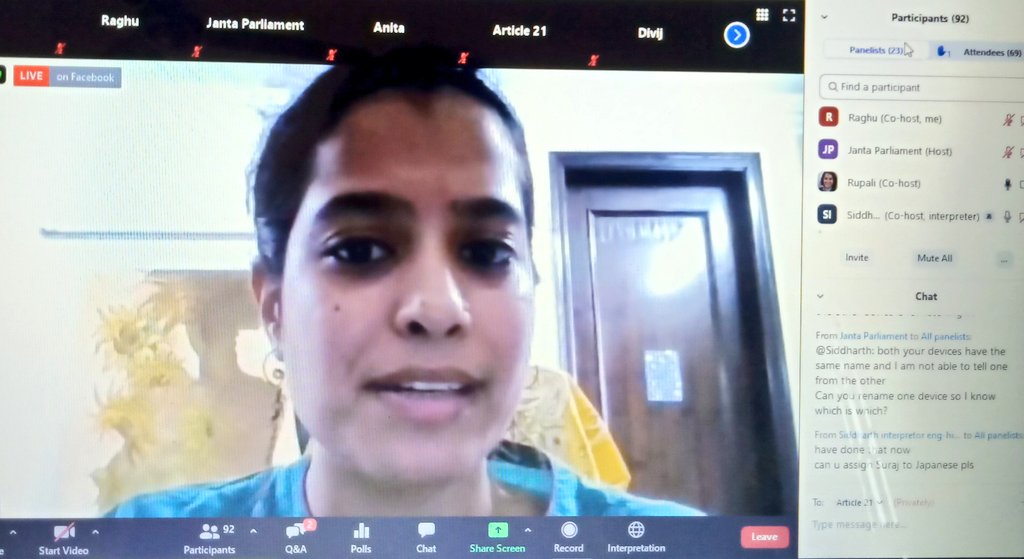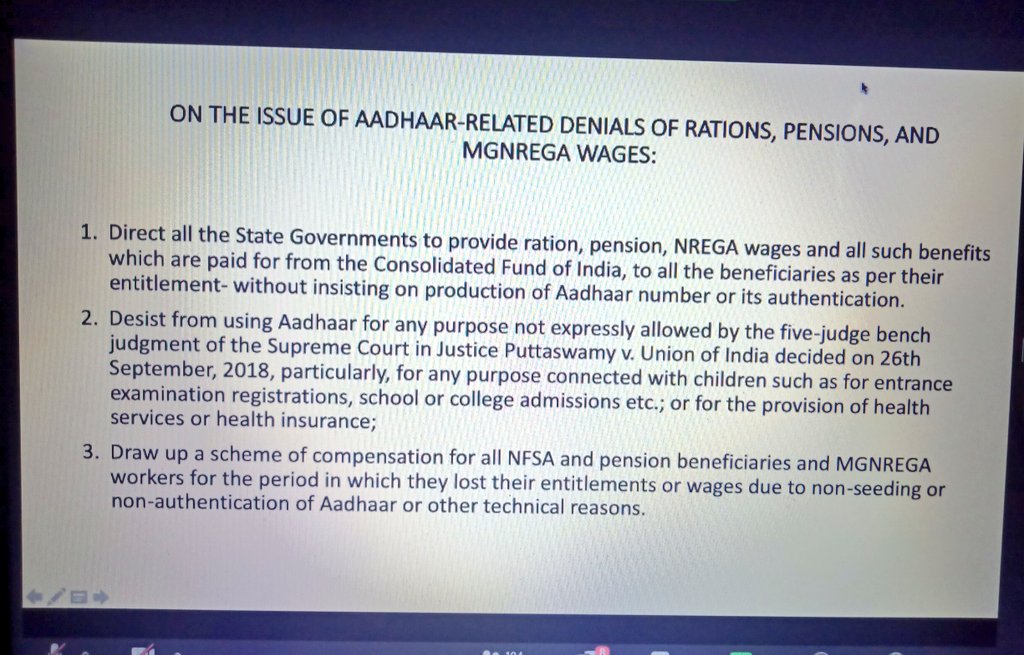
#UshaRamanathan now delivering the keynote address
Fintech where providing data is made mandatory for transactions.
Health: National Health Stack is touted to potentially place India at the forefront of medical research in the world. @PMOIndia spoke about Health ID recently.
Privacy is really about power and control. What is this idea of transparency we've brought in and what has it done to people's rights?
@SwetaDash93 then starts by talking about how technology itself being political as is our choice thereof.
Data travesty during Covid19. Takes the example of capping treatment prices for Covid19 patients but no data being in the public domain.
Navmee of SWAN to speak next.
@SameetPanda speaks next of #Aadhaar exclusions in Odisha
@KapoorAstha of Aapti to speak next
We need to think about unlocking the value of data for workers? Special category needs to be created for workers' data. Collective bargaining can happen through data cooperatives.
@skchinmayi speaks next
Corporates don't care about improving infrastructure.
@deepika4mh to speak next.
@kanksshi to speak next
@kanksshi then cites #BlackLivesMatter and the custodial deaths #jayarajandbennix in questioning pervasive use of technology in law enforcement.
Then talks about inability to report gender-based violence online as no category exists for such complaints.
Sidharth speaks next of navigating technological barriers in access justice via virtual courts.
Citizens need to be able to differentiate between manufactured and informed consent.
@wisdom_stoic of The Perspective talked about the need for defining data jurisdictions.
@digitaldutta now speaking about 360° degree profiling, Enterprise Architecture



